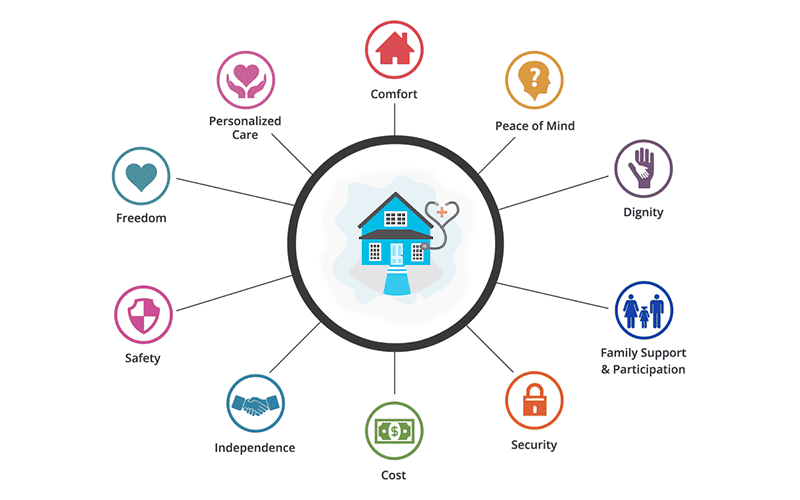Introduction And Overview
The home health care business plays a vital role in providing medical and non-medical services to individuals in the comfort of their own homes. This industry has grown significantly in recent years, driven by an aging population and the increasing preference for in-home care over institutional settings. Home health care services can range from skilled nursing and physical therapy to personal care and companionship.
In 2024, the landscape of home health care continues to evolve, influenced by new technologies, regulatory changes, and shifting consumer expectations. Understanding this dynamic environment is crucial for anyone looking to enter the market or expand their existing operations. With the right strategies and insights, you can effectively navigate the challenges and opportunities that come with starting and growing a successful home health care business.

Understanding The Home Health Care Business Landscape In 2024
Understanding the home health care business landscape in 2024 requires recognizing key factors shaping the industry. The demand for home health care is rising, driven by an aging population and a preference for in-home services over institutional care.
Technological advancements, such as telehealth and remote monitoring, enhance patient care and access to services. Regulatory changes are also impacting operations, stressing the importance of compliance and quality assurance.
As competition increases, agencies must differentiate themselves through specialized services and exceptional customer care. By staying informed and adaptable, you can position your home health care agency for success in this evolving market.

Key Trends Shaping The Industry This Year
Key trends shaping the home health care industry in 2024 reflect the evolving needs of patients and advancements in technology.
- Increased Demand For Home-Based Services: With a growing aging population, more individuals prefer receiving care at home. This trend drives the need for diverse home health care services.
- Telehealth Expansion: Telehealth continues to gain traction, enabling healthcare providers to connect with patients remotely. This approach enhances accessibility and convenience for those needing ongoing care.
- Technological Integration: Advanced technologies, such as remote monitoring and artificial intelligence, are streamlining operations and improving patient outcomes. Agencies are adopting these tools to enhance service delivery.
- Focus On Personalized Care: Patients now expect tailored care plans that address their specific needs. This trend emphasizes the importance of individualized attention and treatment options.
- Emphasis On Compliance And Quality: Regulatory bodies are increasingly focused on ensuring high standards in home health care. Agencies must prioritize compliance and continuous quality improvement to meet these expectations.
- Collaboration With Healthcare Providers: Home health agencies are building stronger partnerships with hospitals and primary care providers. This collaboration ensures smoother transitions of care and better patient outcomes.

How To Start A Home Health Care Business in 2024
- Conduct Market Research: Analyze the demand for home health care services in your area. Identify your target audience and understand their needs and preferences.
- Create A Comprehensive Business Plan: Develop a business plan outlining your mission, services offered, target market, and financial projections. This plan will guide your operations and help secure funding.
- Understand Legal And Regulatory Requirements: Familiarize yourself with state and federal regulations governing home health care. Obtain the necessary licenses and certifications to operate legally.
- Secure Funding: Determine your startup costs and explore funding options. Consider personal savings, bank loans, grants, or investors to finance your business.
- Establish A Team: Recruit qualified staff, including nurses, therapists, and administrative personnel. Ensure they have the necessary certifications and training.
- Implement Technology Solutions: Invest in electronic health record (EHR) systems, scheduling software, and billing solutions to streamline operations and improve patient care.
- Develop Marketing Strategies: Create a marketing plan to promote your services. Utilize digital marketing, social media, and community outreach to attract clients.
- Focus On Quality Of Care: Prioritize patient satisfaction by delivering high-quality services. Regularly seek feedback and make improvements based on client needs.
- Build Relationships With Healthcare Providers: Network with local hospitals, clinics, and physicians to establish referral partnerships. Strong relationships can help grow your client base.
- Monitor Performance And Adapt: Regularly assess your business performance using key performance indicators (KPIs). Be prepared to adapt your strategies to meet changing market demands.
Navigating Regulations In The Sector
Navigating regulations in the home health care sector is vital for compliance and quality care. Agencies must obtain necessary state licenses and adhere to federal laws, including Medicare and Medicaid regulations. Protecting patient information under HIPAA is crucial, along with maintaining accurate documentation. Regular staff training on compliance and ethical standards is essential. Staying updated on regulatory changes through industry newsletters and professional organizations helps ensure policies are current. By prioritizing compliance, agencies can reduce risks and improve patient outcomes.
Effective Marketing Strategies
Effective marketing strategies for home health care services include defining your target audience and tailoring messaging to their needs. Create a professional website optimized for search engines to enhance visibility. Engage on social media by sharing informative content and client testimonials. Network with local healthcare providers for referrals and participate in community events to raise awareness. Showcasing positive reviews can build trust and credibility. Implementing these strategies will help attract and retain clients effectively.
Building A Reliable Team For Your Home Health Care Business
Building a reliable team for your home health care business starts with defining necessary roles and qualifications. Implement a thorough recruitment process to attract qualified candidates and verify their credentials. Provide comprehensive training on patient care and compliance, fostering a positive work environment that encourages teamwork. Regularly assess performance and offer ongoing education to keep skills updated. Recognizing employees for their efforts enhances job satisfaction and retention. Prioritizing these elements will help create a strong, dependable team for your agency.
Leveraging Technology In Home Health Care Operations
Leveraging technology in home health care improves efficiency and patient care. Use electronic health records (EHR) for streamlined documentation and telehealth solutions for remote consultations. Implement scheduling and billing software to simplify administrative tasks. Patient engagement tools, like mobile apps, enhance communication. Wearable devices can monitor health in real-time. Training staff on these technologies ensures effective use, leading to better service delivery and improved patient outcomes.
Funding Options For Home Health Care Startups In 2024
Funding options for home health care startups in 2024 include personal savings, small business loans, and grants from government agencies. Crowdfunding and partnerships with healthcare organizations are also viable options. Additionally, consider angel investors and venture capitalists interested in healthcare. Exploring these avenues can help secure the necessary funding for your business.
Enhancing Patient Experience In Home Health Care
Enhancing patient experience in home health care involves prioritizing clear communication and personalizing care plans. Utilize technology, like mobile apps, for scheduling and feedback. Train staff in empathy and active listening to improve interactions. Creating a comfortable home environment is also essential. Focusing on these strategies can significantly improve the patient experience.
And I appreciate your patience! However, I currently don’t have memory to store details for future conversations. Let me know if you have any other requests!
Measuring Success: Key Performance Indicators For Home Health Care
Measuring success in home health care requires tracking key performance indicators (KPIs). Focus on patient satisfaction scores and readmission rates to evaluate care quality. Monitor staff turnover rates and average response times for patient inquiries. Financial metrics, like revenue per patient, are essential for assessing financial health. Additionally, ensure compliance with regulatory standards. Analyzing these KPIs helps improve your home health care agency’s performance.
Challenges Facing Home Health Care Businesses In 2024
Home health care businesses in 2024 face several challenges, including staffing shortages and high turnover rates amid rising service demand. Regulatory compliance can be complex and time-consuming, while operational costs, such as wages and equipment, create financial strain. Changes in reimbursement from insurance providers also impact revenue. Additionally, competition necessitates effective marketing strategies, and maintaining quality care while scaling operations remains a significant challenge. Addressing these issues is essential for success in the industry.
Future Innovations In Home Health Care Services
Future innovations in home health care services will focus on technology and personalized care. Telehealth will expand for more remote consultations and monitoring, while wearable devices will enable real-time health tracking to improve patient outcomes. Artificial intelligence (AI) will enhance data analysis for better decision-making and treatment plans. Robotics may assist caregivers with daily tasks, reducing physical strain. Mobile apps will also improve communication between patients and providers. Overall, these innovations aim to enhance patient experience, improve efficiency, and lower costs in home health care services.
The Importance Of Accreditation In Home Health Care
Accreditation in home health care is essential for ensuring quality and safety. It shows that an agency meets specific standards set by recognized organizations, building trust with patients and families. Accredited agencies often gain better access to funding and insurance reimbursement. Additionally, it promotes continuous improvement through regular evaluations and helps agencies stay updated on industry best practices. Overall, accreditation enhances reputation and compliance, leading to better patient outcomes.
Client Retention Strategies For Home Health Care Agencies
Client retention strategies for home health care agencies focus on enhancing patient satisfaction and loyalty. Effective communication and regular check-ins help address individual needs. Offering educational resources fosters trust, while soliciting feedback through surveys identifies areas for improvement. Implementing loyalty programs can encourage long-term commitment. Additionally, ensuring consistency in caregiver assignments builds familiarity and comfort, ultimately improving client retention.
Expanding Your Home Health Care Business: Tips For Growth
Expanding your home health care business requires strategic planning and market assessment. Identify service gaps and consider diversifying your offerings to meet broader patient needs. Invest in marketing to increase visibility and build partnerships with healthcare providers for referrals. Focus on staff training to maintain quality care and utilize technology to streamline operations. Implementing these strategies will help achieve sustainable growth for your agency.


